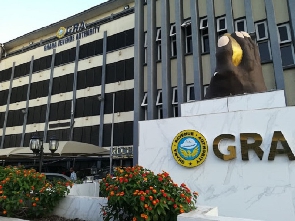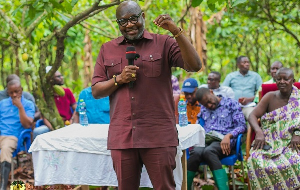Two of Ghana’s biggest issues currently affecting progress are joblessness, unemployment, and witchcraft (both foreign and local).
Local witchcraft is described as mothers, sisters, grandmothers, etc., tagged as witches by members of the larger society and forcibly packed into witch camp prisons across the country, with Gambaga Witch Camp being the most infamous, deplorable, and inhumane of them all.
Gambaga Witch Camp is in the North East Region, approximately 49 km and 50 minutes drive away from Walewale, the hometown of our current vice president, H.E. Alhaji Dr. Mahamudu Bawumia.
Here, I refocus, lest I digress from the other big issues seriously affecting our dear country, i.e., joblessness and unemployment.
‘The Big 4’ is the name collectively given to the world’s four largest accounting firms, namely PWC, EY, DTT (Deloitte), and KPMG, where ‘Busy Seasons’ and a 24-hour work cycle have been staples for many decades in some jurisdictions; corporations deemed highly elite and easily identifiable across the length and breadth of the globe.
Anyone who has ever interned, worked, or passed through any of these accounting
firms would easily recognize the concept of a '24-Hour Economy.' In Ghana’s quest to solve the unemployment problem, which is the single most depressing problem threatening to derail an entire generation of young adults and upending many families, the 24-hour work cycle, if successfully introduced and implemented, would indeed be a game changer.
In principle, this concept, which already exists in some industries like healthcare, would be spread to other industries, including finance and accounting, in the country, just like their counterparts beyond the shores of Ghana have been running for decades.
Busy seasons, which could run anywhere from 6 months to 9 months for some and an entire 12 months for others, are a period in the yearly life of a Big 4 employee where work never stops. In short, different people work at different times (shifts) continuously in a 24-hour timeframe throughout the lifetime of a project.
This is a period of tremendous hiring for many firms since as many hands as possible are needed to complete assignments. The burnout rate is so high during this period for various interns, independent contractors, and consultants that compensation is exceptionally high.
Some interns and consultants who make it through this period will get full-time positions, while others may not necessarily enjoy the year-round experience of such a tremendous workload and would much prefer to be yearly seasonal hires, using the time in between hires to either cool off or pursue other interests.
Because the accountants work nonstop 24 hours a day, other support services like IT (information services) and janitorial services also do the same. Security and front desk personnel would equally work 24 hours a day. All these lead to new hires and employment for people who would have been wilting away otherwise, abusing alcohol and other hard drugs in their quest to forget their daily ‘wahala.’
The concept of a 24-hour work cycle is rather straightforward: There shall be a 1st, 2nd, and 3rd shift for most corporations, with new hires and employees who are compensated for their output, thus helping to cut down on unemployment
rate.
Indeed, some firms may need extra motivation in the form of tax breaks and other
incentives to participate, which would be a tax break worthy of dishing out since these breaks would be in barter for jobs for the people. Rather, we currently have a system where tax breaks are given based on friendship, nepotism, greed, and sheer buffoonery without corresponding production or benefits to the larger society.
The concept of a 24-hour economy already exists in many jurisdictions and various industries, including engineering, fast food, etc. Admittedly, not every company can participate in a 24-hour work cycle, nor would it make sense for the government to suddenly be imposing or incentivizing the wrong players just to create an artificial payroll.
The concept works in other places, and all Ghana must do is learn and implement it efficiently and effectively. It is not the cure for all the issues Ghana faces today, but at least it is a starting point.
Instead of always embracing the buffoonery from other countries, we may import
something great and lasting for once with the concept of a ’24 Hour Economy.’ The Chinese and Koreans did it by learning the good things the West has to offer and adding their localized touch to them.
Should it succeed, we Ghanaians would discover that not every country on this earth looking for solutions to their problems (ex. unemployment) took huge sums of money to promote the ills of other societies in their countries.
Fellow Ghanaians, what we need most are Jobs, Jobs, and Jobs, not some garbage called human rights, which no one seems to be able to define except our dear President H.E. Nana Akufo-Addo and his band of profiteers.
Opinions of Monday, 24 June 2024
Columnist: Fiifi Ofori















